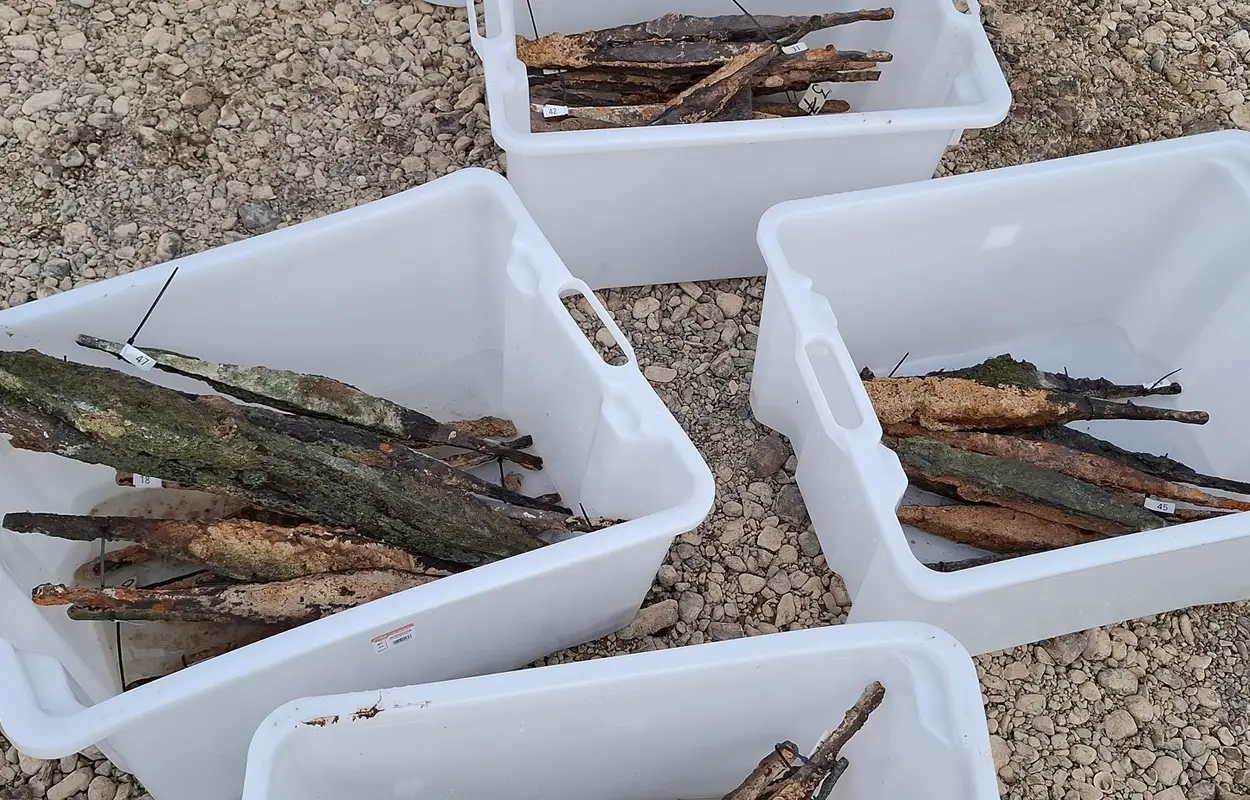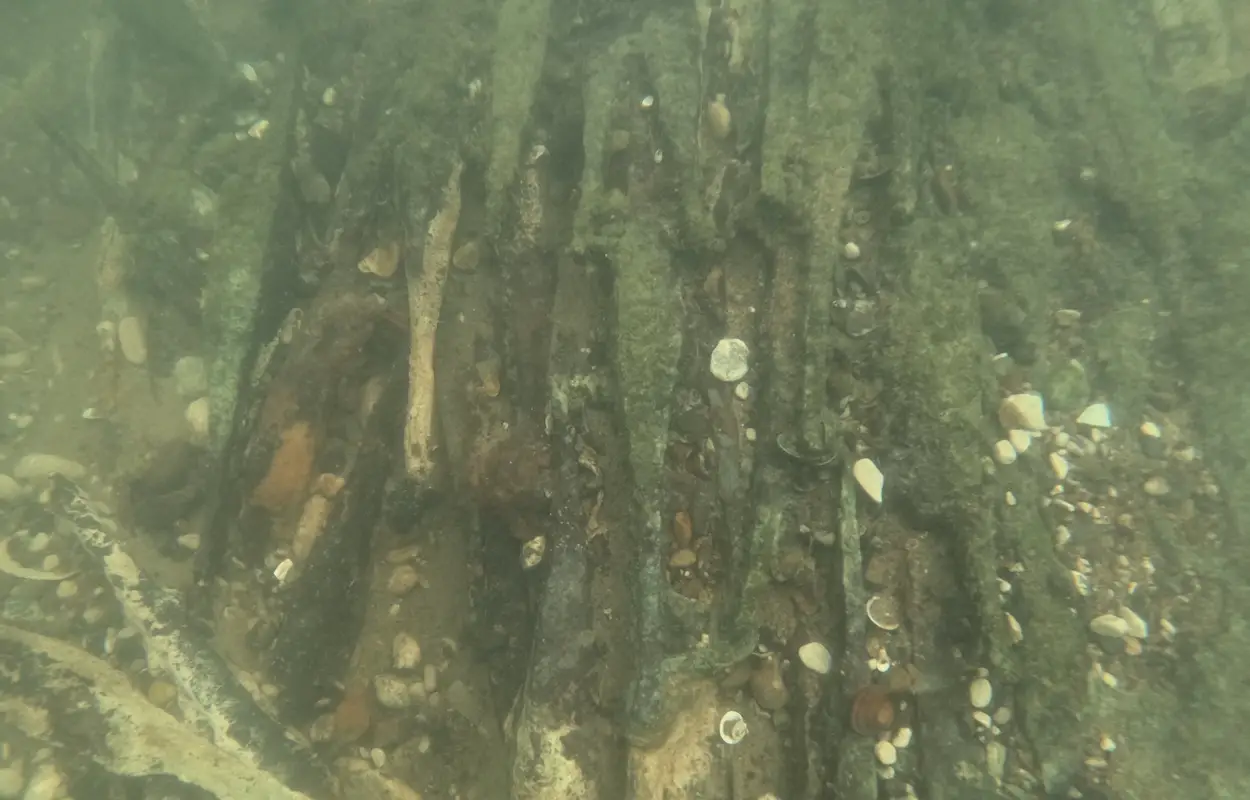A large cache of bipyramidal ingots has been discovered in the Sava River in the Posavina Canton, Bosnia and Herzegovina.
Experts from the Franciscan Monastery Museum – explain that the ingots are pure metal castings, once shaped for smiths who forged them into tools, weapons, and household items.
The ingots found in Posavina Canton are cast in a bipyramidal form and dates from around the 1st or 2nd century BC. During this period, the land of Illyrians became the Roman province of Illyricum, which was fully annexed by the early 1st century AD.
According to Jozo Jezerčić, director of the Franciscan Monastery Museum “Vrata Bosne” in Tolisa, the iron ingots may have been part of a cargo shipment that sank while being transported along the river—possibly due to a storm or conflict.

Until now, only a single ingot from this period has been previously documented in the region, however, larger caches have been documented in France, Hungary, Germany, and Romania.
Each ingot from the Posavina Canton cache was documented using fixed reference points and photogrammetry to produce a 3D model and site plan, before being lifted and preserved in tubs of distilled water.
Experts now plan to conduct a chemical analysis to determine the metal’s origin that could lead to new insights into ancient trade routes linking Bosnia Posavina with Central Europe.
Header Image Credit : Franciscan Monastery Museum
Sources : Franciscan Monastery Museum





